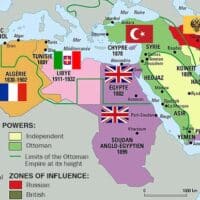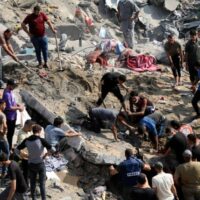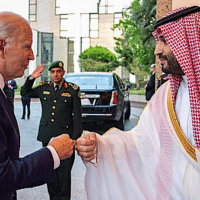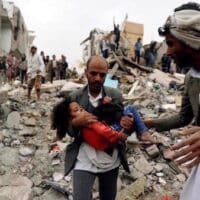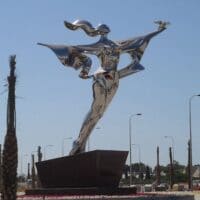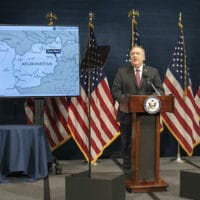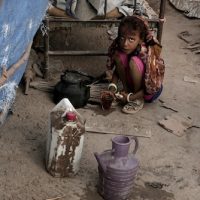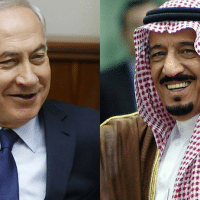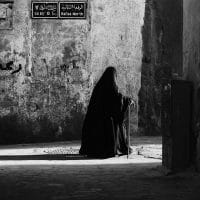-
Conquered lands
To the victors, the spoils.
-
Death of petrodollar is a Biden legacy
The Deep State should have been alert five years ago when Candidate Joe Biden announced that he, if elected as president, was determined to make the Saudi rulers “pay the price, and make them in fact the pariah that they are.”
-
Arab-Iran amity is a geopolitical reality
The forthcoming first visit by Iran’s President Ebrahim Raisi to Saudi Arabia on November 13 marks a milestone in the rapprochement between the two countries mediated by China in March. The relationship is fast acquiring a qualitatively new level of solidarity in the context of the Palestine-Israel conflict.
-
U.S. pressures Saudi Arabia to sell oil in dollars, not Chinese yuan, amid Israel negotiations
As part of negotiations for Saudi Arabia to recognize Israel, the United States is demanding that Riyadh keep pricing its oil in dollars, not China’s renminbi or other currencies.
-
The U.S. continues to lose Middle East power and ‘Tel Aviv’ makes things worse
If the U.S. wishes to navigate its way in a world where it no longer rules, but shares power with China, it must reconnect with reality.
-
Why the Saudis have called off their Israeli wedding
After leading Israel’s extreme far-right to victory in last November’s elections, a buoyant Benjamin Netanyahu hoped to quickly resume Tel Aviv’s march towards full normalization with Arab regimes.
-
Over 11,000 Yemeni children have been killed or injured since 2015: UNICEF
2015 is the year when the Saudi-led international coalition intervened in the conflict in Yemen. It has also imposed a blockade crippling land and sea blockade.
-
Between the sword and the neck: why the Arab streets rejects Zionist normalization with Arab states
U.S. media outlets and politicians have nearly all parroted the same praises of the recent “peace agreements” between Israel and the repressive U.S.-backed governments of the United Arab Emirates, Bahrain, Sudan, and Morocco.
-
COP26: why advanced countries must proportionately make by far the biggest cuts in carbon emissions–factual briefing
Fortunately, the scientific data produced by the IPCC makes it possible to calculate the real changes which are required to combat climate change.
-
The imperialist origins of Saudi Arabia
Why is Saudi Arabia, a Sunni absolute monarchy, enthusiastically supported by the West, considered a global promoter of ‘democracy’? This question is rarely asked.
-
Killer Prince
The Saudi offer of a ceasefire in Yemen on 22 March was an acknowledgement by Riyadh and its backers in Washington that they had lost the war.
-
THE ANGRY ARAB: Machinations in the Gulf
Trump was too busy nursing his grudge to bother with overseas matters, but both his son-in-law and secretary of state rushed through a package of foreign policy initiatives and policies, writes As`ad AbuKhalil.
-
‘Freedom is blossoming’: After dismembering a journalist, Saudi Arabia goes on a PR spree
“Freedom is blossoming.” That is how, without a shred of irony, CNN International Diplomatic Editor Nic Robertson describes Saudi Arabia in his recent article.
-
Trump is showering Saudi Arabia with last-minute gifts
Saudi Arabia’s use of American diplomatic cover and weapons alike has taken on a fevered pace as the Kingdom deepens the tragedy it has afflicted upon Yemen.
-
Witnessing the hell that a migrant can face
The Saudi-UAE war on Yemen has been going on for five years. Despite recent peace talks leading to an improvement in aid distribution, the violence has escalated in certain key districts of Yemen over the past two weeks. Since January, 35,000 Yemenis have been displaced from their homes, an indicator of the dangerous situation in the country.
-
Media stenography turns beheaded Saudi protesters into ‘terrorism’
All three outlets also added gratuitous details about the attack in Sri Lanka and/or other ISIS-related attacks–attacks that there’s no suggestion any of the defendants were connected to. In fact, most of these defendants were arrested before ISIS existed. And a majority of those killed, being Shiites, would be viewed by ISIS as heretics.
-
Starving off-camera: in Yemen 20 Million fuel the Saudi-U.S.-NATO war machine
Within days of starting the war, Saudi Arabia imposed a total land, air and sea blockade, along with targeting vital agriculture and food supply infrastructure that sustains life for the 29 million Yemenis—all of which constitute war crimes under international law.
-
Israel aiding Saudi Arabia in developing nuclear weapons
Saudi interest in developing nuclear weapons dates back to the 1970s, when the kingdom learned of major steps taken by both Israel and India in the development of nuclear armaments.
-
The biggest impediment to Saudi women was never the driving ban
No matter their age, Saudi women are treated like minors — to the point that many require permission from their sons to work, study, or travel.
-
America’s love affair with Salafi jihadists
Contrary to popular media portrayals, the Middle East wasn’t always plagued by regressive fundamentalism. Salafi jihadist groups like Al Qaeda were not popular in the region. They still aren’t. They have been violently imposed on people thanks in large part to the actions of the US, which has a longstanding pattern of backing religious fundamentalists to further its geopolitical ambitions.

